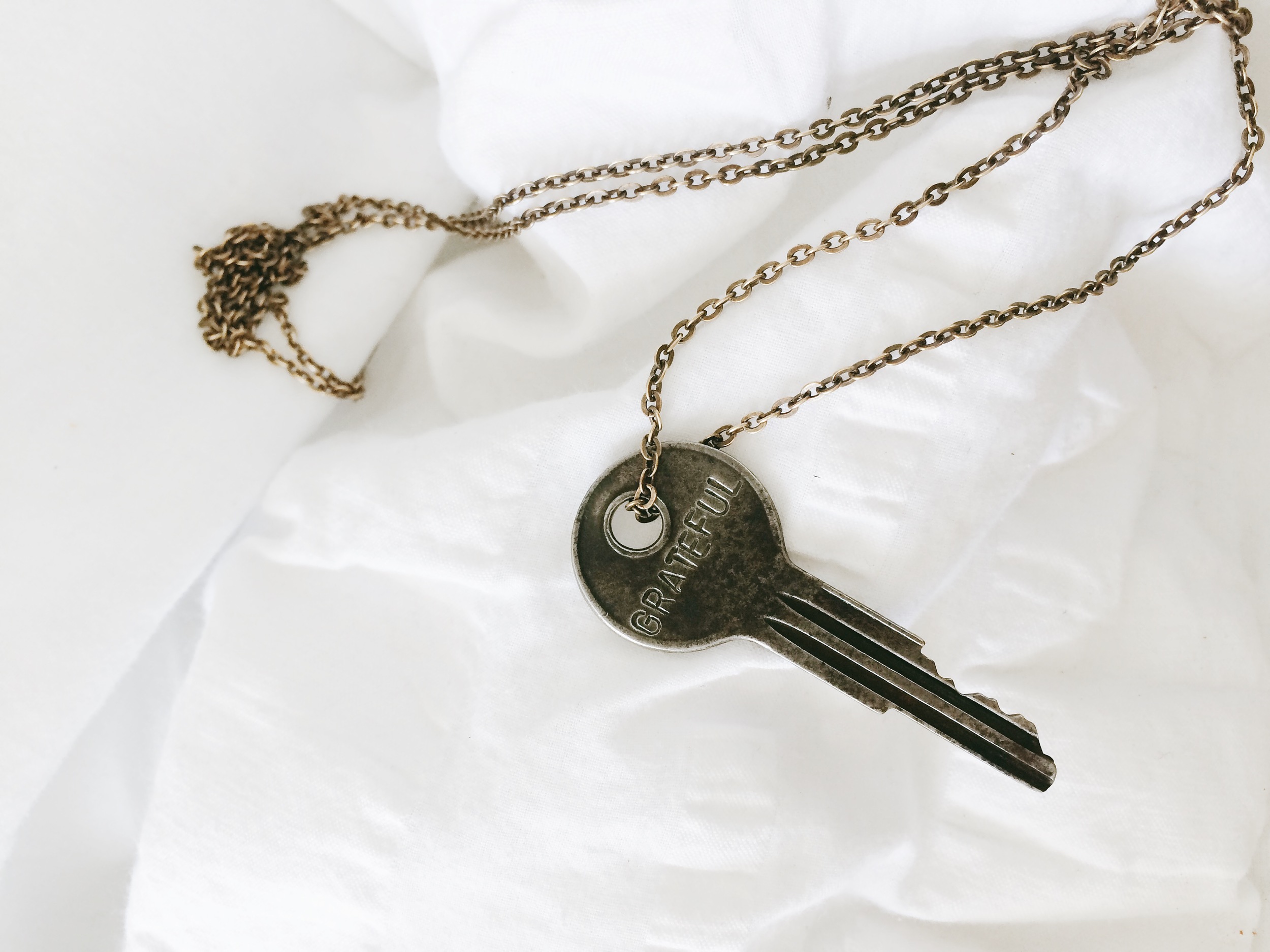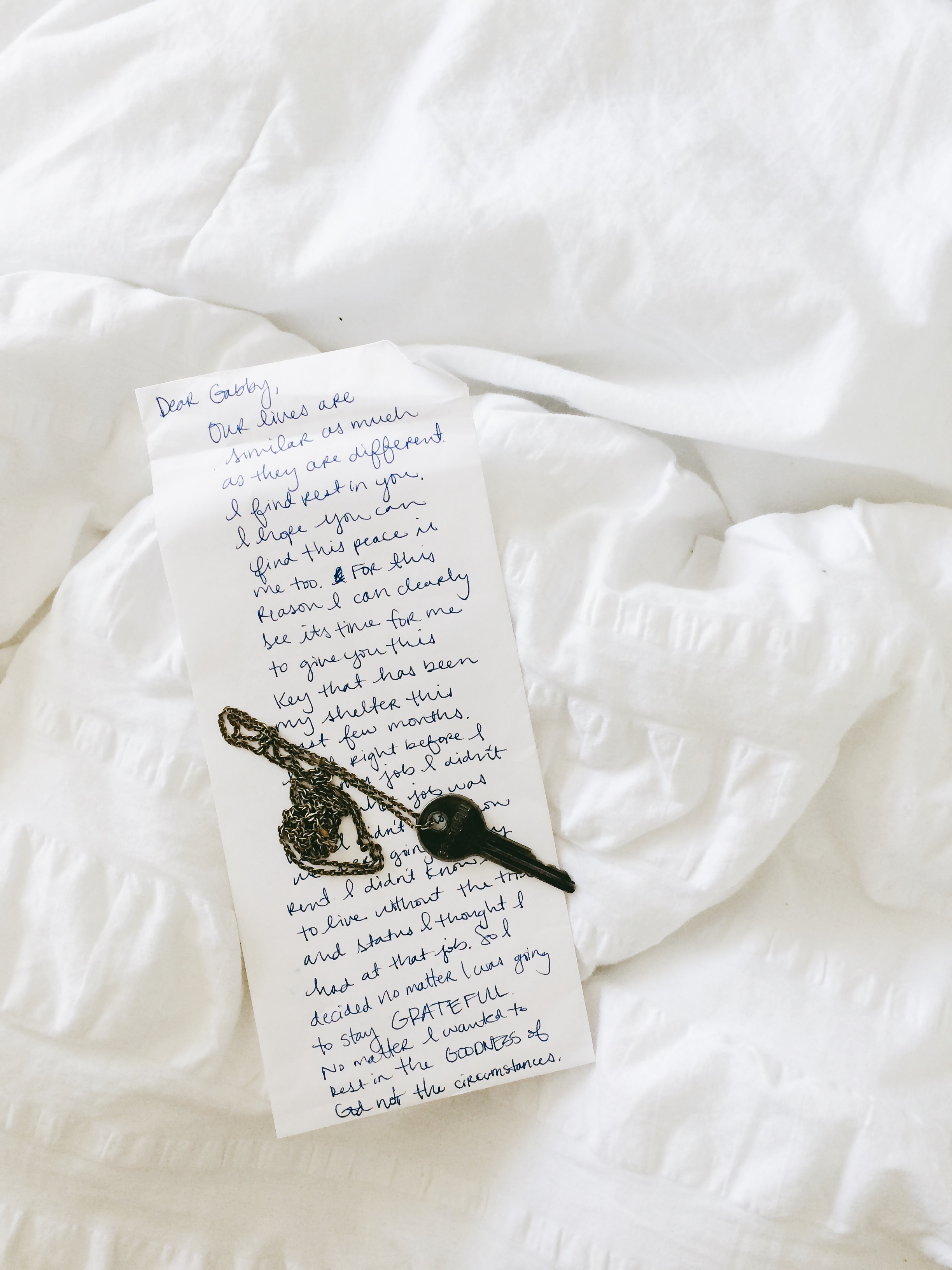This piece was originally published on threads: a Christian collective.
I never dreamed of working backstage.
No literally, I never dreamed of working behind a stage, which is what I do at my job for my husband’s band. It’s dark and has none of the lights and glamour that prop the front of the stage up. I run in and out of black curtains, grabbing more t-shirts, sending emails, taking pictures, and generally trying to be useful. Most days I even wear all black just to fit into the background more.
No one knows who I am, or that I’m even there. And to be honest it’s taken me a while to learn to be okay with that. It’s not what I always dreamed of doing, but if I’m even more honest, it’s because I struggle with putting more value on what’s happening on stage than behind it.
I wish that wasn’t true, but it is. Somedays I get scared if I keep working in the background I’ll fade away. Somedays I think I’m worth more. Somedays I believe so many lies it immobilizes me.
I don’t think I’m alone in these insecurities, and I’m definitely not alone in my need to fight them. Even though most of us don’t work behind an actual, physical stage it doesn’t mean that we don’t struggle with feeling like we’re living on the sidelines of someone else’s show. We all believe lies about the value of a front and center stage.
As a millennial I’ve grown up believing that I can do anything and be the best. I know it sounds dumb, and that’s because it is. I also live in a society that’s all about self-promotion— on social media, in work, even in when it comes to faith communities, we long for a sense of worth and leadership. Working backstage has uncovered so many lies I didn’t even know I believed about what it means to be a human who is worth something.
In this post I want to use the metaphor of the stage to identify three lies and challenge them because I believe they threaten to damage our effectiveness in the kingdom of God.
1 The stage is worth more than anything else around it.
My big lie that I catch myself believing is that what happens on stage is worth more than what happens off it. Basically, that to be worth anything I need to have a spotlight, a microphone, a throng of fans validating my self-worth. Isn’t that such a gross lie? It makes me gag a little. I think we all have a “stage” that we aspire to. We want to be the best at what we do, the leader, the talent, the worshiped one. When we’re not, we feel like we’ve failed.
We only need to look at Jesus to see the truth about the center stage. Even though he actually deserved the worship, the honor, the spotlight, he lowered himself to be the least of these. He came to serve, to wash feet, to be killed for the sake of his people. Jesus rejected the “stage” because he knew it wasn’t the way he was going to be the most effective for the kingdom.
Of course this doesn’t mean that the stage and having a platform is evil. Having a platform to serve from can be such a powerful and beautiful tool. But the main purpose for a platform is to serve the good of others and bring glory to God. When those two things aren't happening, the platform has lost its eternal value. People with the brightest spotlights should be the biggest servants. If they’re not, then they’re abusing their role.
2. What happens backstage doesn’t matter.
Okay, obviously this one isn’t true, so then why do we all believe it? I know it might feel like it’s true when you spend long hours day and night to make an event happen in your community and no one notices it. We’re vain people, we lust after glory.
The most hardworking member of our road team is our tour manager Tom. He’s the first one awake, the last one to go to bed, he drives trucks, loads gear, deals with challenging people, he even gives up his meals sometimes for our bus driver when there isn’t enough. He’s a legend that serves with his all at all times. We couldn’t live without Tom. Some us even question if we’d still be around without him! But literally no one asks Tom for his autograph. He’s one of the most valued members of our team, but publicly no one even knows he exists.
What happens backstage matters just as much as what happens on stage. If you’re feeling discontent and under-recognized in your team, in your ministry, in your life I would challenge you to ask yourself: what makes it all worthwhile? If the answer is the approval and appreciation of other people, then maybe it’s not the right job for you. Tom works as hard as he does for two reasons: 1) he loves it, 2) he loves how it impacts others for good and that it brings glory to God. I think those are some pretty good things to root your work in.
“So that your giving may be in secret. And your Father who sees in secret will reward you.” - Matthew 6:4
3. Where are my fans? How do I get them?
I know it’s uncomfortable to talk about, because we all pretend we don’t care about glory. Wake up! We all care about the glory! If you treat life like your stage you may stumble into the spotlight, but you’ll miss the eternal point.
Every Christian has been taught this world is not our home, that this life is fading, a breath, a vapor. And yet so many of us— myself included— are so caught up in living our best life now! We’re all guilty of hoarding up our medals and treasures here on earth, and all they do is cloud our vision of heaven.
You don’t get fans, you’re not meant to be worshiped. None of us are. And that shouldn’t bother us. The closest we should ever get to being on the stage of God is getting to be the spotlight that shines on him or the microphone through which he speaks. And we all get to be those things in our lives, through our words, and in our actions.
“Sell your possessions, and give to the needy. Provide yourselves with moneybags that do not grow old, with a treasure in the heavens that does not fail, where no thief approaches and no moth destroys. For where your treasure is, there will your heart be also.” - Luke 12:33-34
I feel like I’ve done a lot of preaching, so let me end on this note of encouragement to the one who is struggling with self-worth: you are worth so much more than what you do or don’t do. Before you did anything, Jesus did everything because he thought you were worth it. Rest in that, abide in his love, and trust that he sees you and is all the audience you need— in this life and the next.















